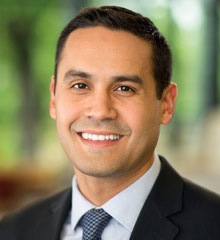
I Am an Old, Decrepit Computer
Comparing myself to an aging piece of technology might not have been the smartest move.
In the cover letter I sent with my application to Luther Seminary, I noted that I hoped that my students would someday see my teaching as they might an old computer with a disk drive that was
 too small, a processor that was too slow, and a display that was too fuzzy. What I meant was that I hoped my students would grow beyond the things I would teach them, that they would take the knowledge and wisdom they honed in my classroom to address new situations.
too small, a processor that was too slow, and a display that was too fuzzy. What I meant was that I hoped my students would grow beyond the things I would teach them, that they would take the knowledge and wisdom they honed in my classroom to address new situations.
At first glimpse, the comparison to an outmoded device might seem strange, even self-defeating, but I still think it’s true to my teaching. This image came back to me recently.
Last month, I had the good fortune of spending time with awardees from the Forum for Theological Exploration at the Wabash Center. The group was composed of scholars of color who were working on their dissertations. Just on the cusp of starting their careers, these budding scholars joined a colleague and me in conversations about the vocation, skills, and art of teaching. We also contextualized these important questions in a professional trajectory that remains difficult—if not downright hostile—to the work and well-being of scholars of color. (For more on this, see Presumed Incompetent: The Intersections of Race and Class for Women in Academia).
We spent the weekend doing the hard work of pedagogical reflection. It's odd that a love of teaching and learning drives so many of us to graduate work, but so little of our graduate education actually focuses on the art and skills of teaching (except for the accidental pedagogical osmosis we experience with our best teachers and mentors).
 Now, those influences are mighty. I think about my high school English teacher, Richard Luckert, who first introduced me to Ralph Ellison’s Invisible Man. This was not a book that reflected his identity directly, but it was vital to his teaching us to listen carefully to the voices of diverse others. I think about Carolyn Cole at my undergraduate institution who taught me the phrase “art saves lives” and then invited me to read literature that proved that simple but transformative confession. She taught that poetry could give voice to pain and joy alike. She taught me that literature could evoke an imagination for justice in an unjust world. I could add a whole litany of teachers and so could you, I presume. These teachers were and are formative in the kind of teacher I am today.
Now, those influences are mighty. I think about my high school English teacher, Richard Luckert, who first introduced me to Ralph Ellison’s Invisible Man. This was not a book that reflected his identity directly, but it was vital to his teaching us to listen carefully to the voices of diverse others. I think about Carolyn Cole at my undergraduate institution who taught me the phrase “art saves lives” and then invited me to read literature that proved that simple but transformative confession. She taught that poetry could give voice to pain and joy alike. She taught me that literature could evoke an imagination for justice in an unjust world. I could add a whole litany of teachers and so could you, I presume. These teachers were and are formative in the kind of teacher I am today.
And yet these exemplary models so often tend to teach us to imitate what we have seen. Much of that imitation is valuable; we learn much from master teachers who mentor and shape us long after we have received a diploma. And yet a fully developed pedagogy—one that is true to our particular identities, our training, our research, our various contextual settings—demands that we consider our immediate teaching contexts and notice when our previous patterns of instruction simply do not fit even if they profoundly shaped us.
A fully engaged pedagogy requires that we understand ourselves as embodied teachers in a real classroom. Simple imitation or mimicry here is simply insufficient; we cannot take on the identities, postures, and embodied practices of a beloved teacher. I love my teachers, but they are not the full expanse of who I am as a teacher. In fact, I’m sure they would want me to grow as a teacher, to teach differently than they did because I am who I am and because the world and the needs of students have shifted in the meantime.
And so, today, I think I would still write the same letter and enunciate a hope that my students would find me outmoded and outdated at some point because only then will they have the freedom to teach in a way I never could have expected. Only then might they become the teachers they are meant to be rather than the teacher I was.